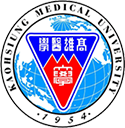Our research field can be classified to five parts: epidemiology, molecular biology, respiratory physiology, critical care medicine (respiratory care) and nutrition & pulmonary disease.
- Epidemiology:
Combined with patients’ clinical data and new molecular biologic technique, we can develop several important issues, including disease target genes identification, detective gene chip development, and new drugs development. With the advanced results, we can apply this technique on the epidemiology research of lung cancer and chronic obstructive pulmonary disease and increase clinical diagnosis accuracy. - Molecular biology:
With advanced molecular biologic technique, we will understand several mysteries: metastatic mechanism of cancer cell, tumor cell proliferation and drug resistance; the role of heat shock protein on the carcinogenesis mechanism; new therapeutic agents (traditional Chinese herbs). If we can clarify the exact mechanism of lung carcinogenesis and metastasis and new target drugs, we can increase the survival rate of lung cancer patients. In addition, we are also interesting the effect of occupational, environment air pollen on airway inflammation and chronic obstructive pulmonary disease. We try to analysis the exact mechanism with our molecular biologic knowledge, animal mode design and cross section of questionnaire for the epidemic people. - Respiratory biology:
There are still many limitations for the treatment of pulmonary disease, such as pneumonia, acute respiratory distress syndrome, and acute lung injury. The limitation may come from the pathogenesis of these disease are not fully understanding. Through the basic respiratory biologic mode and animal mode, we can make clear the mechanism and provide a novel therapeutic model. - Critical care medicine (respiratory therapy)
Our critical care research were divided to several issues in recent years.- Acute intoxication (organophosphate and paraquat):
We had analyzed our past 10 years experience on herbicide intoxication treatment and will design our standard treatment protocol. With standard treatment plan, we will decrease our mortality of herbicide intoxication. - Percutaneous dilatational tracheostomy:
We had proved combination two different technique (Ciaglia Blue Rhino technique and dilating forceps)can shortening the operation time and decrease the procedural complications. - Sepsis:
Intensive sugar control and early sepsis markers had been done for years and some preliminary data is surprising. This result will help us more understanding the sepsis mechanism and improving the clinical outcome of sepsis. - Respiratory therapy:
ventilator associated pneumonia prevention (novel oral hygiene device), risk factors of ventilator related barotraumas, successful extubation predictor and extubation failure risk factors.
- Acute intoxication (organophosphate and paraquat):
- Clinical nutrition and pulmonary disease:
We had collected the nutrition data, including energy intake and protein intake of ventilator support patients. With these data, we will explore the correlation of nutrition intake and clinical outcome of critical ill patients. Furthermore, these results will help us to establish the nutrition index of critical ill patients and nutrition intervention for critical ill patients.
